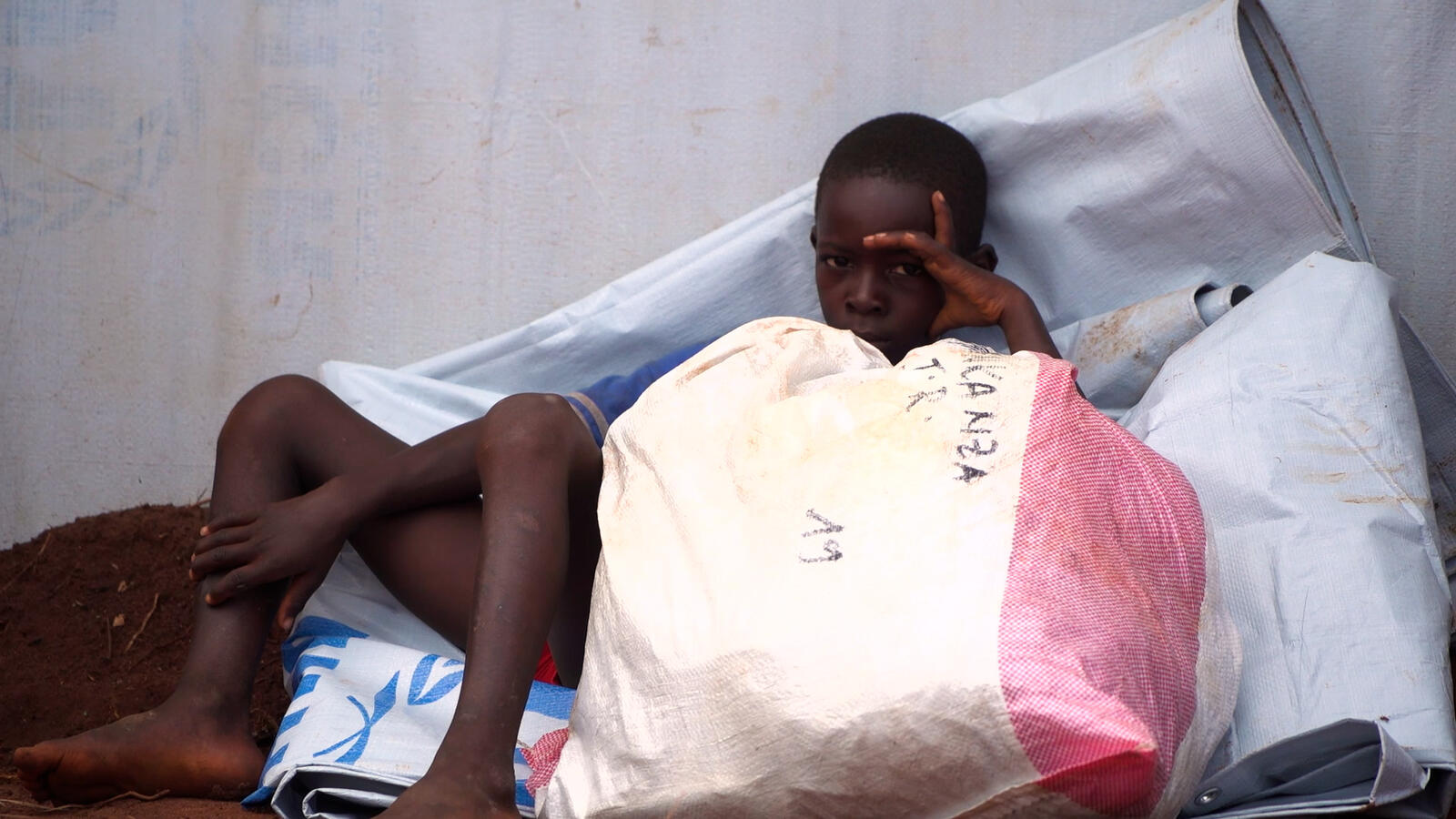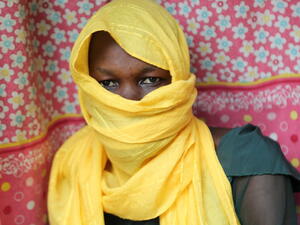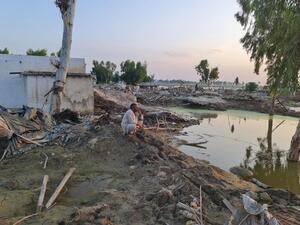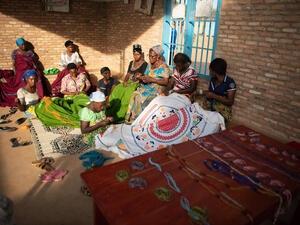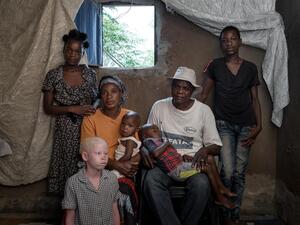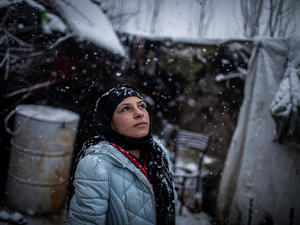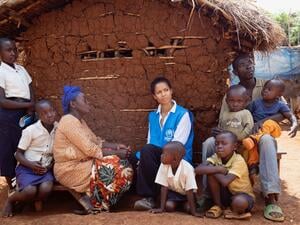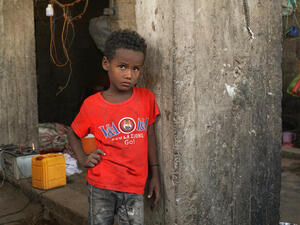COVID-19 tops list of UNHCR's most underfunded crises in 2021
COVID-19 tops list of UNHCR's most underfunded crises in 2021

A Syrian refugee girl takes in washing during a storm at an informal settlement in Beqaa Valley, Lebanon, in February 2021.
Global efforts to shield forcibly displaced people from the health and economic impacts of COVID-19 are under threat due to a critical shortage of funding, according to a new report showing that UNHCR’s pandemic response tops the list of its most underfunded emergencies in 2021.
Other emergency situations where UNHCR, the UN Refugee Agency, faces a potentially disastrous lack of resources include Iraq and Syria, where the safety and wellbeing of millions is under threat as they scramble to prepare for the looming winter.
The report reveals that as of 31 August, projected COVID-related needs of $924 million had attracted only $307.3 million in funding – just a third of the total required. The shortfall leaves refugees, internally displaced and stateless people exposed to the virus and its economic impacts, including loss of income and the threat of eviction.
“The pandemic has hurt forcibly displaced and stateless people in ways that reach far beyond the risk posed by the virus itself. And the failure to adequately fund the response only deepens their plight,” said Ann Burton, UNHCR’s Chief of Public Health, at a news briefing in Geneva.
Refugees have borne the full impact of the economic repercussions of the pandemic, Burton added. As the shutters came down on business and workplaces, their precarious livelihoods were often the first to go. Economic deprivation meant greater risk of eviction and more difficulty affording food and other basics, which in turn increased the risk of exploitation and gender-based violence for children and adults alike.
- See also: Data points to negative impacts of COVID-19 for forcibly displaced women and children
- See also: COVID-19 pandemic worsening gender inequalities for refugee women and girls
Lockdowns and border restrictions introduced by countries in response to the pandemic also excluded and endangered people attempting to cross borders to reach safety. At the same time, the inequitable access to vaccines of many refugee-hosting states risks leaving forcibly displaced and stateless people out in the cold.
“As UNHCR, we reiterate our call on states to share excess doses with COVAX in a timely way, to address the global vaccine inequity and avoid prolonging the pandemic,” said Burton.
In Iraq, UNHCR’s operations for this year have so far received just 34 per cent of the total funding required, followed closely by the Syria situation at 39 per cent.
In the countries affected by the Iraq and Syria emergencies, COVID-19 has compounded the enormous challenges faced by 3.3 million refugees, internally displaced people and returnees, who are in urgent need of aid to prepare for the forthcoming winter.
Among other interventions, cash assistance is critical to meet their basic needs. The lack of sufficient funding to meet their requirements would significantly compromise the livelihoods and wellbeing of the most vulnerable among them.
Other global responses struggling to attract sufficient financial support from donors include the Venezuela, South Sudan and Democratic Republic of the Congo situations, all of which have received less than half the funding required for 2021.
The report makes the point that no situation is irredeemable. This was clearly shown by the surge of funding recently pledged towards UNHCR’s Afghanistan appeal, which lifted it out of the 10 most underfunded emergencies.
However, Afghanistan remains the exception that proves the rule: many displacement situations remain critically overlooked, with dangerously low funding levels only addressed once they lead to life-threatening emergencies that push them to the top of the international agenda.
The report “UNHCR’s most underfunded situations in 2021” is available here.

